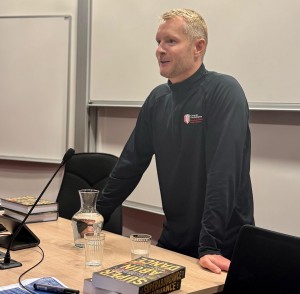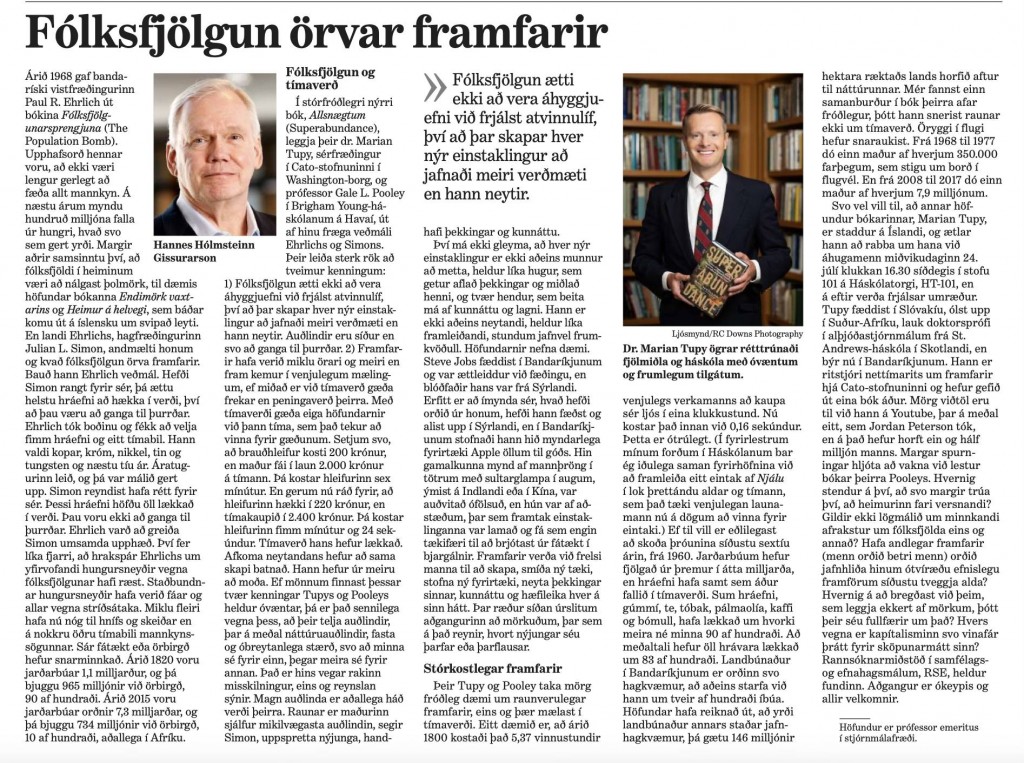 The summer of 2022 saw the publication of the book Superabundance; the Story of Population Growth, Innovation, and Human Flourishing on an Infinitely Bountiful Planet by Dr. Marian Tupy of the Cato Institute in Washington DC and Professor Gale Pooley. They present two main theses: 1) Population increase is not bound to be a problem because in a free economy each individual would tend to produce more than he would consume. Natural resources are by no means dwindling. 2) There has been much more progress than is reflected in the usual measurements of economic growth. What is most relevant is the time price of goods, not their money price, where time price maeans the time it takes to work for the goods.
The summer of 2022 saw the publication of the book Superabundance; the Story of Population Growth, Innovation, and Human Flourishing on an Infinitely Bountiful Planet by Dr. Marian Tupy of the Cato Institute in Washington DC and Professor Gale Pooley. They present two main theses: 1) Population increase is not bound to be a problem because in a free economy each individual would tend to produce more than he would consume. Natural resources are by no means dwindling. 2) There has been much more progress than is reflected in the usual measurements of economic growth. What is most relevant is the time price of goods, not their money price, where time price maeans the time it takes to work for the goods.
The first thesis is amply confirmed by experience. The dire predictions in The Limits to Growth and A Blueprint for Survival which both were published in Iceland in 1973 turned out to be wrong. Food production has increased at a greater rate than the population. Natural resources have not been dwindling, for two reasons, that new resources have been discovered and that old resources are utilised more efficiently. For example, if a machine is invented that uses only half the energy of its predecessor, then it means that the energy reserves for this kind of production has doubled in size. It is also easy to argue for the second thesis. If a loaf of bread costs 200 Icelandic kronur while its consumer earns 2,000 kronur per hour, then its time price is six minutes. But if the price of the loaf increases to 220 kronur while its consumer earns 2,400 kronur per hour, then the time price has fallen to five minutes and 24 seconds. A good example of astonishing progress which is not well reflected in ordinary statistics is the price of light. In 1800, it cost 5.37 hours for a common worker to buy one hour of light. Now it costs less than 0.18 seconds.
Marian Tupy visited Iceland in July 2024 and gave a talk at the University of Iceland on 24 July, with Hannes H. Gissurarson, Professor Emeritus of Politics at the University, chairing. After his talk, Tupy responded to questions. One question was whether man had really seen moral progress in the twentieth century, given its horrors, Nazi extermination camps such as Auschwitz and Stalinist and Maoist slave camps such as Karaganda. Tupy agreed that certainly there was still much evil in the world, but he pointed out that acts of evil had to be evaluated relative to the population, and then they probably turned out to be less prevalent than in the more distant past.



